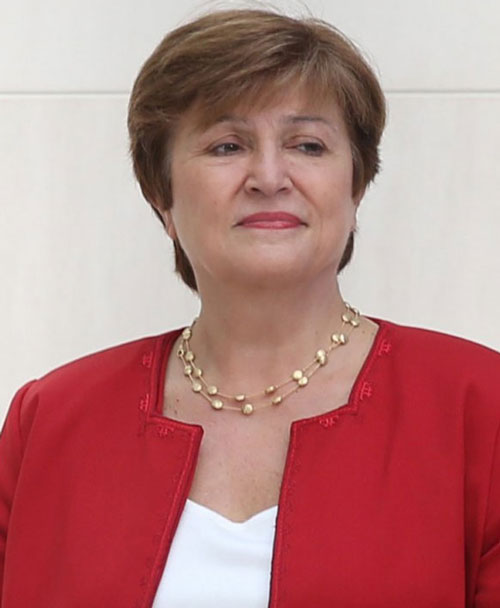Washington
Global governments must work together to provide massive spending as in the 2008 financial crisis to help the economy withstand the damage from the coronavirus pandemic, IMF chief Kristalina Georgieva said Monday.
Emerging markets are facing a massive outflow of cash and will need support as well, she said in a blog post.
She again pledged that the IMF “stands ready to mobilize its $1 trillion lending capacity to help our membership,” including $50 billion in rapidly deployed funds for emerging and developing economies.
Governments have taken some steps, especially to address health efforts to contain the spread of COVID-19, but they “should continue and expand these efforts to reach the most affected people and businesses — with policies including increased paid sick leave and targeted tax relief,” Georgieva said.
But more is required beyond individual country actions, and “as the virus spreads, the case for a coordinated and synchronized global fiscal stimulus is becoming stronger by the hour.”
In 2009 alone, countries in the Group of 20 committed two percent of GDP, or over $900 billion, “So, there is a lot more work to do,” she said.
Meanwhile, the US Federal Reserve joined forces on Sunday with the European Central Bank and others to provide dollar swap lines to ensure global financial markets have guaranteed access to sufficient cash to continue to operate, “steps we know have worked before,” Georgieva said, adding that emerging markets likely will need support as well.
She cited data from global banking group the Institute of International Finance showing that investors have pulled nearly $42 billion from emerging markets since the beginning of the crisis.
“This is the largest outflow they have ever recorded,” she said. “Going forward, there may be a need for swap lines to emerging market economies.”
Central banks in those countries facing financial market stress can use currency market interventions as well as “capital flow management” — a term that can refer to limits on how much cash can be removed from the country — as a useful tool to complement other actions, she said.—Agencies










